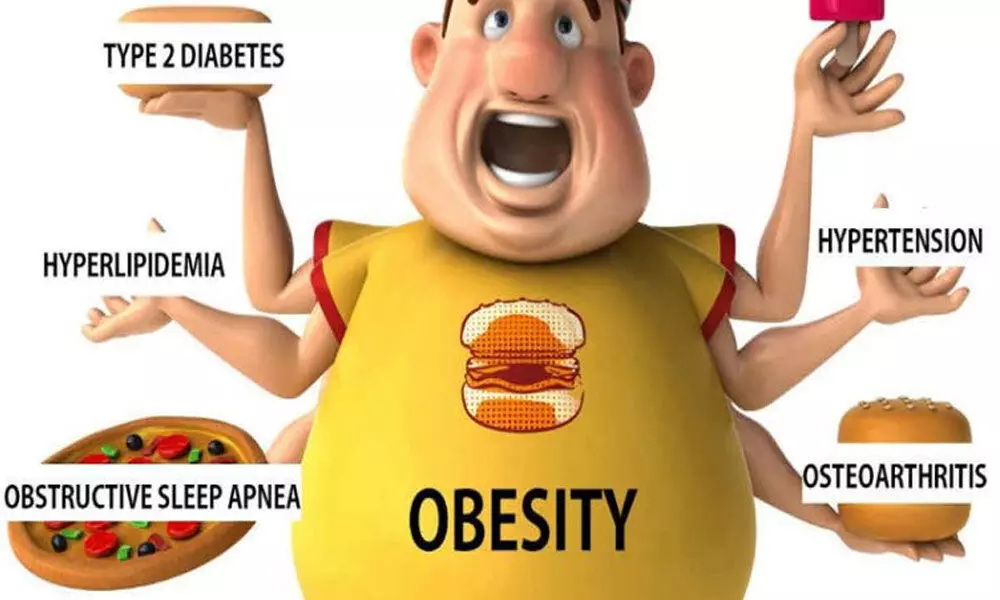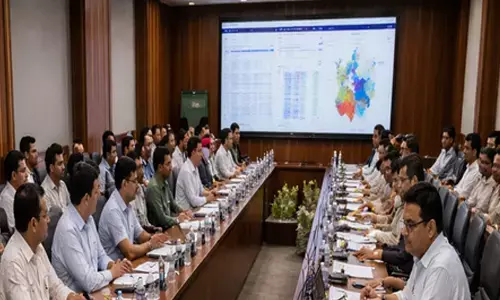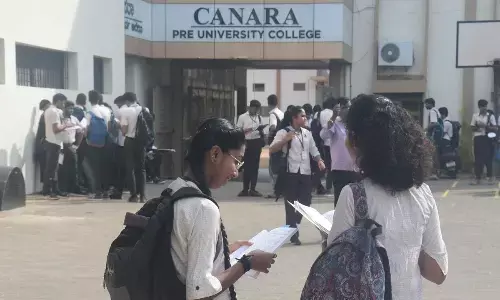Obesity a very big problem now

Obesity a very big problem now
For over two decades, obesity has emerged as a bigger health crisis globally than hunger. It is now the leading cause of disabilities and deaths around the world. On the occasion of World Obesity Day, healthcare professionals underlined the need to enhance awareness on this ever-growing lifestyle disease.
Hyderabad: For over two decades, obesity has emerged as a bigger health crisis globally than hunger. It is now the leading cause of disabilities and deaths around the world. On the occasion of World Obesity Day, healthcare professionals underlined the need to enhance awareness on this ever-growing lifestyle disease.
"Over the past century, the world has progressed on many health parameters. Today, there are very less deaths among kids due to immunisation against ailments and availability of food is shifting focus away from malnutrition. However, changing lifestyles and easy access to high-calories food is pushing children and adults towards obesity, which unfortunately has some devastating outcomes at times," said Dr Riyaz Khan, CEO, Continental Hospitals.
"Many global reports suggest that around two billion adults in the world are overweight or obese, a condition that is worsening at an unprecedented rate and shows no signs of waning, unless some drastic measures are taken. Covid-19 and associated deaths are a warning bell for us all to maintain health, and if these warning signs are ignored, there could be more devastating implications in the times ahead," said Dr Mervin Leo, Cluster COO, Gleneagles Global Hospitals. According to him, obesity is not just about being overweight and lethargic. This condition will have an adverse impact on vital organs like liver and kidneys. Hence it is important people realise the negative impact of overweight and work towards addressing the problem early.
Dr Anitha Reddy, Consultant Medical Gastroenterologist, SLG Hospitals, pointed out that obesity is normally associated with morbidity related to diabetes and cardiovascular diseases. "However, there are many gastrointestinal and hepatic diseases for which obesity is the direct cause, like non-alcoholic fatty liver disease. Obesity complicates other mechanisms in the human body and results in earlier presentation of diseases or aggravating the conditions of some ailments. Overweight could be a cause for developing certain cancers too, and before it is too late it is best advised to take care of oneself, and not repent or pay a heavy price at an advanced stage of complications," she said.
So, how do people know if they are overweight and needs to take care of their healthy? Weight that is higher than what is considered as a healthy weight for a given height is described as overweight or obese. Body Mass Index (BMI) is used as a screening tool for obesity. BMI is a person's weight in kilograms divided by the square of height in meters. A high BMI can be an indicator of high body fatness. Leading a physically active life could address the problem to certain extent, before the possibility of recovery turns grim.











